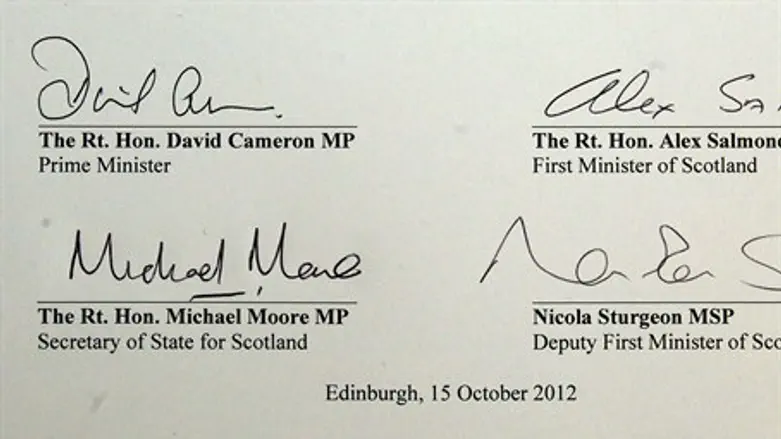
Although British Prime Minister David Cameron truly and sincerely wants to save the union and persuade Scotland not to secede, the pitiful state of the British Conservative party north of the River Tweed has meant that the heavy lifting has to be done by the Scottish Labour Party.
Up to now the leader of the fight has been the former Chancellor of the Exchequer Alistair Darling, but now a bigger beast in the form of Gordon Brown, the former prime minister, has entered the contest.
Not the type to play Middle East negotiator or darling of the lecture circuit like his predecessor Tony Blair, Gordon Brown, following the example of other prime ministers, has contented himself with a parliamentary seat from Scotland.
Using a speech in his constituency, Brown launched a broadside against the Yes side in the Scottish independence debate. In his address Brown claimed that everybody had been focused on the questions of what would be the actual wording of the referendum, such as: who would vote? and who would be the major players? What had been neglected hitherto were the answers to these questions and what Scottish independence would mean.
Far from subordinating Scottish values, the United Kingdom had empowered them and the UK had achieved better results than the European Union or the United States given, the vast disparities between the richest and poorest countries in the EU and richest and poorest states. There was only a 4% difference between Scottish income and English income.
Brown poked fun at the Scottish Nationalists, who having seen that the euro was an albatross, now claimed that they would retain the Pound Sterling and the Bank of England. Under such circumstances, argued Brown, the Scottish Nationalists, far from achieving independence, would be responsible for self-imposed colonization.
Under their plans the rest of the Uk and not Scotland will decide the interest rates we pay, the costs of the mortgages we hold, the rates at which business lends money, why under their proposals Scotland has no power over setting the inflation target, controlling the money supply, deciding crisis measures like quantitative easing.
Subtly taking credit for his efforts as Chancellor of the Exchequer under Tony Blair in sidetracking British entry into the euro, Brown noted that in advance of a decision over the euro, the government had published 19 studies over 2 years. A similar thoroughness was required in the current debate "with an even more important issue, we cannot leave today’s blank pages about the costs and risks empty and unfilled."
It would be a stretch to say that a starring role in the campaign against Scottish independence could trigger a comeback for Gordon Brown. It would be realistic to say that it could solidify his standing in British and Scottish political history.